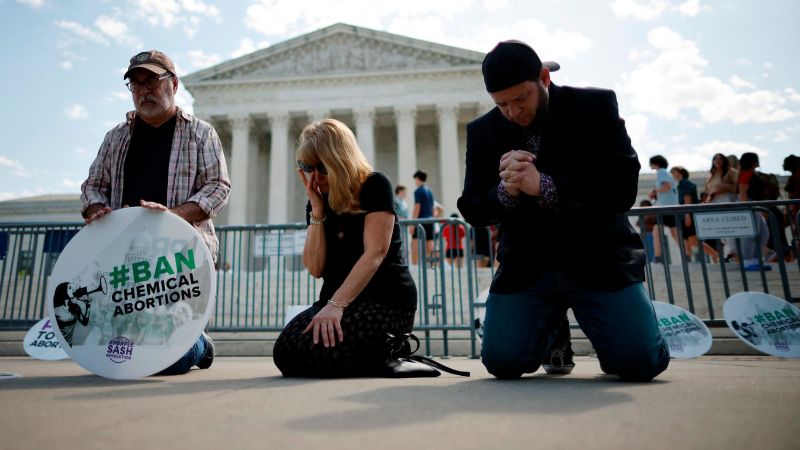- cross-posted to:
- twoxchromosomes@slrpnk.net
- cross-posted to:
- twoxchromosomes@slrpnk.net
The Supreme Court said Wednesday it will consider whether to restrict access to a widely used abortion drug — even in states where the procedure is still allowed.
The case concerns the drug mifepristone that — when coupled with another drug — is one of the most common abortion methods in the United States.
The decision means the conservative-leaning court will again wade into the abortion debate after overturning Roe v. Wade last year, altering the landscape of abortion rights nationwide and triggering more than half the states to outlaw or severely restrict the procedure.



Well in my view, seatbelts and drunk driving laws are mandates for helping protect and safeguard bodily autonomy (of others if not yourself). And yes federal laws do compromise bodily autonomy, but such measures have to be in place when someone’s autonomy threatens the safety of other people.
This is just my opinion, but I think we do have an inalienable right to bodily autonomy. But in a world with other people around we can’t truly have total autonomy all the time. So I get the point you’re making in that regard. The law must inhibit behaviors that are indecent or harmful to other people.
However in the case of abortion rights, I think the current laws restrict access to necessary healthcare, and one’s healthcare choices are the most autonomous of all personal choices. No one can force you to go seek medical care, but by the same token no one should be passing laws to make it impossible to seek such care.
You don’t think the right is inalienable if you’ve just listed two situations in which bodily autonomy is justifiably alienated, see?
You can absolutely forced to be vaccinated or quarantined by the government. No country I’m aware of has laws to the contrary. Even like, if you get hurt at work, the government can require you to have surgery if doing so would regain your functional capscity, contingent on future wage loss or medical treatment benefits.
Sounds good to me.